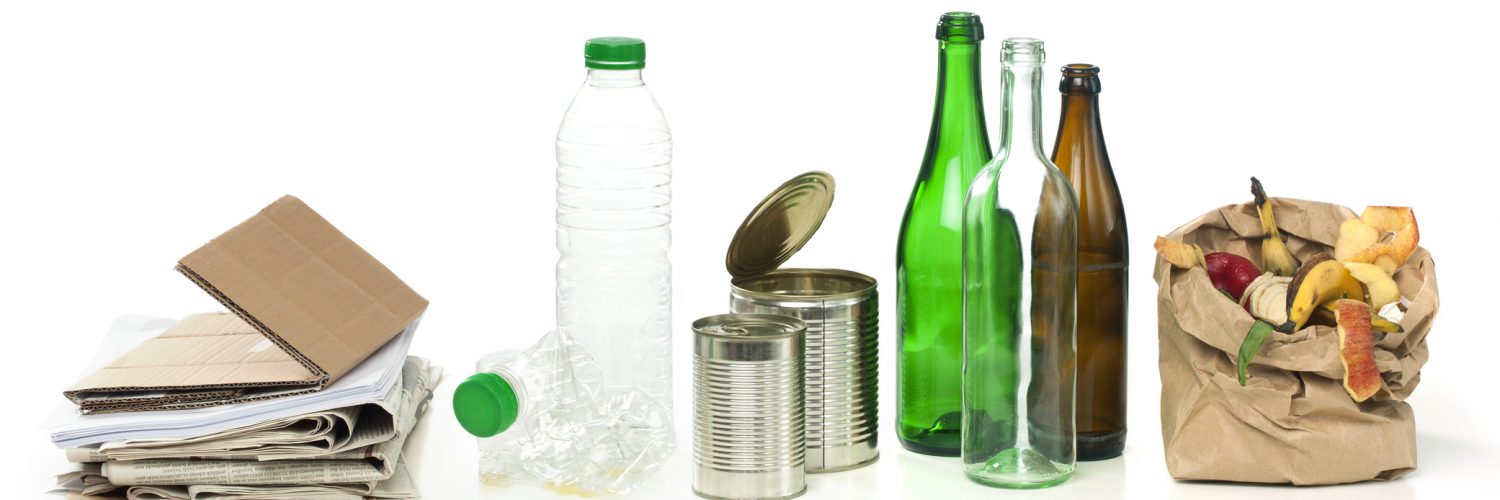The health of the planet has a big impact on our individual health and well-being. Pollution, litter and similar factors contribute to the deterioration of our environment and also play a role in our own physical and mental health. It doesn’t take huge changes to have a positive impact on the health of the environment. Choosing to take small steps when possible can contribute to improvements for the planet as well as the health of you and your family. In honor of Earth Day, we present these tips to you to help you live green.
Reuse when possible. Reusable bags, water bottles and similar items can drastically cut down on waste with little change to your day-to-day habits. Carry small, packable reusable bags in your car or bag to have one handy at all times. Reusable water bottles made from BPA-free plastic, steel or glass, among other materials, can be easily refilled without having to buy bottled water or find a place to recycle the bottle.
Recycle. If you’re not doing so already, recycling appropriate materials is a great way to cut down on trash heading to the landfill (and sometimes our oceans and other waterways). Contact your local municipality to determine what is or isn’t recyclable, and set up an easy system in your home to make sure anything that can be recycled is.
Eat locally. Our food consumption stresses the environment in multiple ways. From clearing land to grow food, long drives to transport food from its source to the store, and excess packaging that ends up in the landfill, there are many points in the process where we can make positive changes. One of the easiest steps you can take is purchasing meat or produce that has been raised or grown locally. You can support local farmers while reducing the amount of time it takes to transport the food, plus you know it’s fresh and in-season!
Avoid wasting food. Food waste can have a big impact beyond your wallet. For example, food waste takes up space in landfills and creates methane gas, which can damage the atmosphere. We also use precious resources like water and land to produce food, so when we don’t eat it, those are used unnecessarily.
Planting a tree, shrubs, or plants like flowers or grasses around your house or neighborhood will help prevent soil erosion, absorb CO2 from the air, and beautify your home space.
Be conservative with power and water. Being more thoughtful about our energy and water consumption, we can help reduce our footprint and our bills! Try to cut down on long showers most days, unplug electronics when they’re not in use, and do a quick sweep of the house before bed or when heading out to make sure no lights have been left on. You’ll be surprised at how these small steps can have a big impact!
Limit your paper use. Opt for paperless billing, subscribe to email versions of catalogs rather than opting for mailed copies, and unsubscribe yourself from any unsolicited mail you may receive. Not sure where to start? Click here to learn more. Any paper that you do use or receive should be properly recycled rather than dropped in your trash can. You can search by your location to find places to recycle your paper and many other items here.
Don’t litter! Always properly dispose of your trash—and if you see trash, pick it up and bring it to a garbage can, when possible.
Filter your own water. Think about the amount of energy and resources it took to get that bottle of water from a factory to your hand. Using at-home filters, like pitcher or faucet filters, can reduce the amount of plastic bottles you use each month. One water pitcher filter can actually replace up to 300 16-oz. plastic bottles from being used! (And don’t forget, if you do buy bottled water, always recycle the bottles.)
Consider alternate transportation. If you live in a city with public transportation, try to utilize trains or buses instead of driving your own car, cutting down on emissions into the environment. Alternately, consider biking or walking if your destination is close by. Another idea is to carpool if you and a friend or coworker are headed in the same direction.
Compost. Consider setting up a compost pile or contributing compostable materials to a community composting site. To find a composting site near you, click here.
By taking small steps to lessen your individual impact on the environment, together we can make a big difference!



